There have been a lot of news reports, in the last couple of years, about the link between obesity and cancer. But, as we all know, correlation isn’t the same as causation. Which is to say, just because cancer rates and obesity rates are both on the rise, it doesn’t necessarily mean there’s a connection. Even the fact that cancer rates are increasing in obese people, doesn’t act as proof of a link. So, can obesity actually cause cancer?
To demonstrate what I mean, let’s use the example of Autism and Organic Food Sales:
There is a very strong correlation between the rise of Autism and the rise of organic food sales. Already, I can feel some of you getting twitchy about the safety of organic food. Please don’t. The two data sets on the graph have been deliberately put together because they form the same line. And only then, after the relative scales have been adjusted to achieve the best fit. But, just to be clear: there is NO link between Autism and organic food sales.
Correlation is not the same as causation.
When it comes to the topic in hand, one thing is very clear; just because a person is obese, this does not mean they will develop cancer. Obesity does not always cause cancer.
Most of the news reports talk about ‘links’ to certain types of cancer. And there are over 100 different of those, so which cancers are we talking about here?
The news reports stem back to some research in a handbook on Body Fatness, which was released by the International Agency for Research on Cancer (IARC) in August 2016. The IARC is part of the World Health Organisation (WHO) and the United Nations (UN) and is the recognised authority on cancer research. This is why the research was so widely reported.
Included in the handbook was an article entitled, Body Fatness and Cancer – Viewpoint of the IARC Working Group. And in this article was the table of research that created all the fuss:
The information on this table was taken to mean that obesity could cause the following 13 types of cancer:
- Esophagus: adenocarcinoma
- Gastric cardia
- Colon and rectum
- Liver
- Gallbladder
- Pancreas
- Breast: postmenopausal
- Corpus uteri
- Ovary
- Kidney: renal-cell
- Meningioma
- Thyroid
- Multiple myeloma
But does that mean that the IARC is specifically saying that obesity can cause these cancer types?
Well, no. Not in so many words.
What the Results of the Evaluation, from the handbook, actually stated was this:
The Working Group concluded that there is sufficient evidence in humans for the cancer-preventive effect of the absence of excess body fatness. The absence of excess body fatness reduces the risk of [these 13] cancers.
https://www.iarc.fr/featured-news/media-centre-iarchandbooks16/
This loosely translates to: people who are not obese are less likely to get one of these cancers.
This can be interpreted, by those with a will to do so, to mean that obesity does not cause cancer. That correlation is not causation.
Which is why I want to introduce an analogy…
Does driving with a blindfold on cause traffic accidents?
No, it doesn’t.
I’m very confident, for example, that I could put on a blindfold and drive up and down my drive without getting involved in a traffic accident. I’m also very confident that I could put on a blindfold and drive around my block without causing a traffic accident. Admittedly, in the latter case, it’d be at three in the morning, with a passenger giving me instructions and I would never move faster than a crawl.
So, does driving with a blindfold on cause traffic accidents. Not in the right circumstances.
But, under normal circumstances, if I put on a blindfold and drove across town, could I expect a traffic accident? Definitely.
This is the same principle that applies to obesity. Does obesity cause cancer? Not in all cases. Can obesity cause cancer? Most definitely.
This is why Cancer Research UK answers the question of Does Obesity Cause Cancer as follows:
Yes, overweight and obesity is the second biggest preventable cause of cancer in the UK- more than 1 in 20 cancer cases are caused by excess weight.
https://www.cancerresearchuk.org/about-cancer/causes-of-cancer/obesity-weight-and-cancer/does-obesity-cause-cancer?_ga=2.70580240.1638077252.1563493815-379885154.1525338710#Obesityrefs0
The risk is higher the more weight a person gains and the longer they are overweight for.
The explanation that Cancer Research UK gives for being so definitive in their answer, is that carrying the extra fat cells, that come with obesity, has consequences. Those fat cells have not just a physical impact on your body, but a hormonal impact:
If your body has an excess of fat cells, all shouting at your other body cells to, Divide! Divide! Divide! then cancer cells are going to be encouraged to do what they do: divide and conquer.
So, not only can obesity increase the likelihood of a cancer forming, it can make the resulting cancer grow and develop faster than it otherwise would. A veritable double-whammy!
So, if research has established that obesity can cause cancer, why is the obesity rate continuing to rise?
Well, part of the problem seems to be that, despite obesity being the biggest preventable cause of cancer, after smoking, only 15% of the public is aware of the situation. This number seems shockingly low to me, so please feel free to spread the word.
I think that another potential problem is the rise of the Health at Every Size (HAES) concept, something developed by the Fat Acceptance Movement. The main tenant of HAES is the rejection of the scientific consensus that being overweight and obese is unhealthy. HAES, then, seems to reject the very idea that obesity can cause cancer. Which, given what we know, seems both dangerous and irresponsible.
Another concept put forward by HAES is that of ‘fat but fit’, which is something that I completely accept. I’ve been there. In 2012, I cycled the Way of St James with my dad at a weight of 18 stone (252lb/114kg). The ride took 14 days and covered 600 miles (1,000km) and went over the Pyrenees. I did it, but wasn’t able to keep up with my dad on any of the inclines. My dad is 30 years older than me and we did exactly the same training. The physical impact of my obesity on my body, was I was slower than someone a generation older than me.
Five years later, after the bulk of my cancer treatment but before my third recurrence, we did another two-week cycle tour. This time, through France. Again it covered a distance of 600 miles and, for this one, I weighed 20 stone (280lb/127kg). We deliberately chose a route that didn’t have hills, because we knew that, at that level of obesity, no matter how ‘fat but fit’ I was, it wouldn’t be enough.
I’ve also played any number of hockey seasons at, or around, these levels of obesity.
I have definitely been ‘fat but fit’.
But it’s cost me.
In terms of sprains, strains and injuries, it’s cost me. The damage I’ve done to my back and knees is gruesome. I’m lucky, though, I’m still able to function. But you can count on one hand, the number of hockey players in Somerset who are over 45 years old and over 250lb.
Sure, I was ‘fat but fit’ but I wasn’t healthy at those sizes. Far from it. I was frequently injured and constantly in pain.
Oh, and I was diagnosed with bowel cancer at the age of 43!
And obesity has more than one trick up its sleeve when it comes to encouraging cancer through cell division:
The main argument from HAES and Fat Acceptance is one of metabolism. Because some people have a metabolism that makes losing weight extremely difficult, all people have this metabolism. But metabolism can be measured. And most people’s metabolism is fine. Losing weight, however is hard. Changing the perception of what is healthy, incredibly, turns out to be easier.
How is this a thing?!
How can we be in the situation where some people are screaming to ignore doctors and scientists and that obesity is healthy, and society is listening?
Obese people are going to die from preventable cancers as a result of this…!
Look, losing weight isn’t complicated; it’s just not quick and easy.
Like counting to a million.
It’s not complicated, you just keep counting upwards until you hit the one million mark.
But it’ll take you ages, especially if you have to go back to the previous 10,000 mark, every time you lose your place.
To lose weight you have to regularly expend more calories than you consume, over an extended period of time. This can be achieved by some combination of: reducing calorific intake, and; increasing levels of exercise. This will work for the vast, vast majority of people. It certainly worked for me!
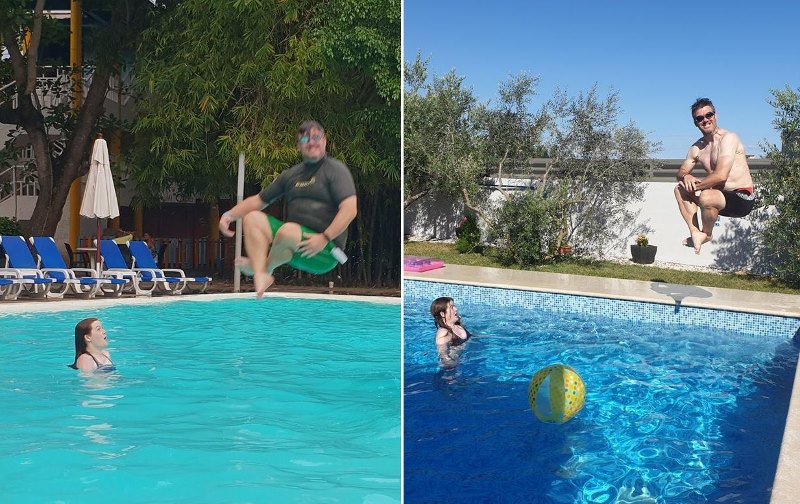
I’ve been ‘fat but fit’ but I’m here to tell you that ‘thin and fit’ is so much better. It is absolutely worth the time and effort it takes to lose weight. It could save your life, for a start. Because there’s no doubt that obesity can cause cancer. It’ll certainly be easier on your joints…
I’ve come to accept the reality of my life: my bowel cancer was quite possibly avoidable.
I can’t tell you how miserable it makes me feel, writing that sentence. I’ve potentially put my wife, daughters, parents and brothers through so much anguish and turmoil, simply because I didn’t want to stop eating cakes! And all of it might have been avoided if I simply hadn’t spent so many years being obese. I kinda hate myself, right now.
Please learn from my mistake. Being obese can cause cancer. Not being obese means you can avoid that cancer.
Don’t be like me. Instead, find a healthy weight and steer well clear of cancer.
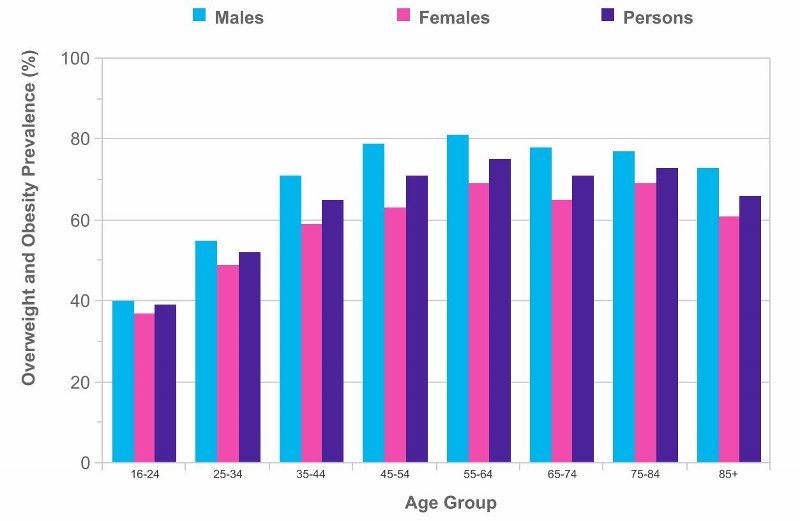
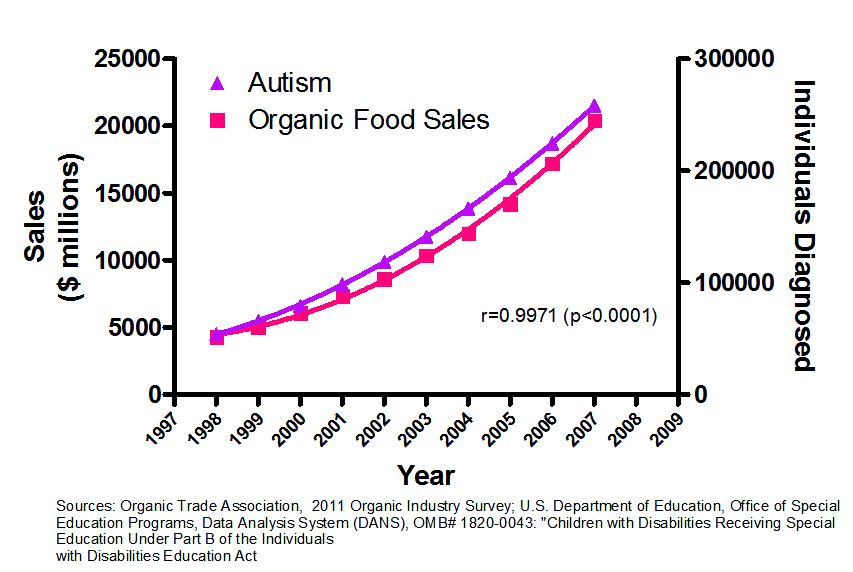
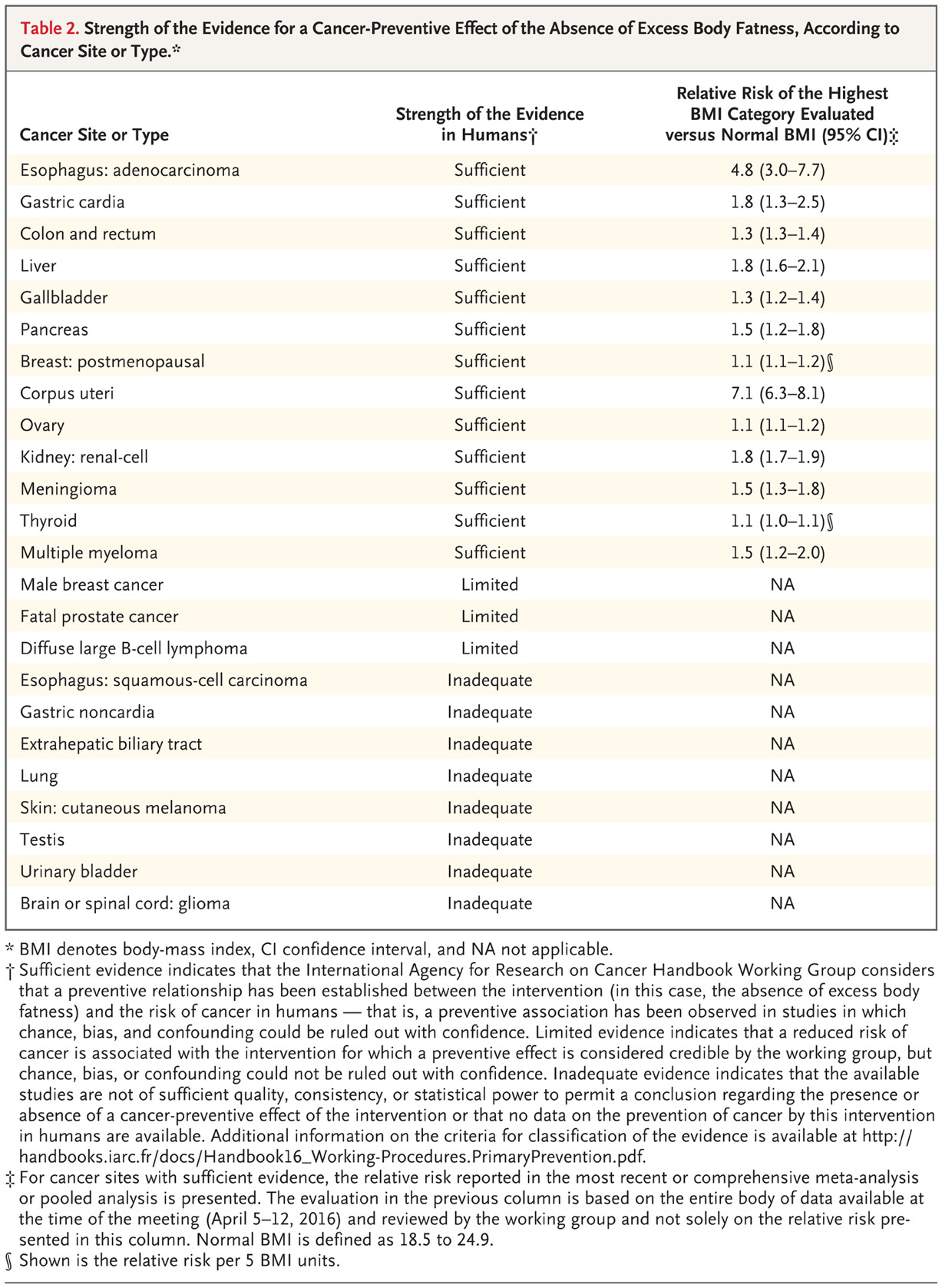
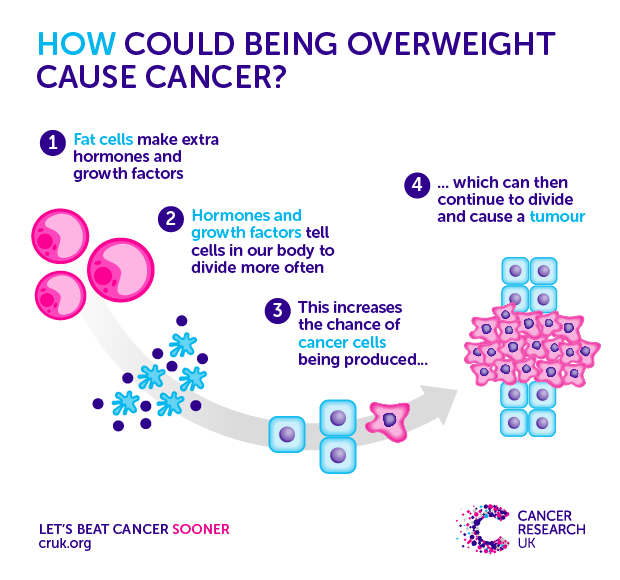
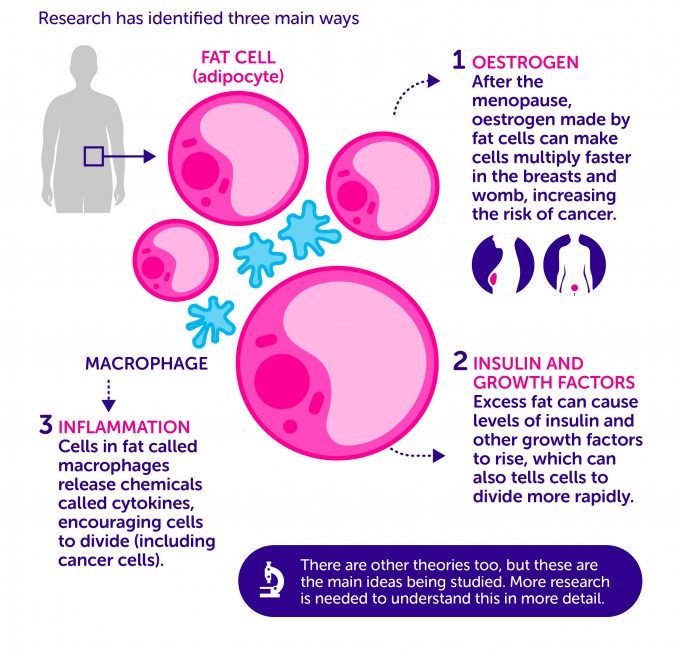
3 thoughts on “Can Obesity Really Cause Cancer?”
I think you should cut yourself some slack. My Husband is and was super fit, lean, perfect blood work, we eat very healthy, good genetics and has Stage 3 poorly differentiated colon cancer. Our primary care doctor put it this way- Your healthy lifestyle didn’t prevent you from getting cancer but it will help you survive and tolerate the treatments better than others. He handles surgery like you do, a rockstar. He also was able to do the Capcetabine pill vs. the pump and tolerated it extremely well. Also, your posts and writing are incredibly helpful to so many of us out here. Just sayin!!!!
Hi Andrea,
Thank you so much for getting in touch.
First off, I’m glad to hear that your husband is dealing with his illness so well. I never get tired of hearing about people coming out on top.
With regard to my feelings of guilt at the end of the post, I think it just snuck up on me. I tend to go into these posts with an open mind and let the research take me where it will. In this case I was suddenly struck with the realisation that my weight could very well have been a contributing factor to my getting cancer at that age… Then I just wrote what I was thinking. In hindsight, perhaps not the smartest move.
Whether my weight did make things worse, is something that I’ll never know for sure, so I’ll try not to dwell on it. Like I say, the thought kinda ambushed me.
Thanks for being so supportive and telling me about your husband, it was very good of you.
All the best to you both,
Paul
I neglected to mention that when I met with my GP Doctor I was expressing to him that I/We had gone through the list of potential causes of Colon Cancer and the only one that we qualified for was Alcohol. My Husband makes wine and every night we would have a few glasses. Our Doctor said that just having wine didn’t bring on Colon Cancer and that is when he said that the fact that Alan is so otherwise healthy and strong would give him much better odds of getting through the treatments and surviving this cancer. I think about studies regarding cancer a lot now and one thing always stand out to me is when they make the lists of things that may cause different types of cancer it is obvious thing like smoking, high fat diets, heavy drinking, etc. and those are all thing we can control. But, what is never mentioned are things like pesticides in our food, water contamination, pollution, radiation exposure, EMF exposure. These are things that are mostly out of our control and never get acknowledged or documented as causes of cancer. Studies no matter how scientific are skewed from the beginning because they isolate a potential cause and create statistics around just that behavior. I worked in Nuclear Power and part of our training required education in the effects of radiation. The correct answer when tested was that radiation does cause cancer. But, if a person smoked or ate a lot of twinkies and bacon and got cancer the cause would never go down on paper as exposure to radiation. I am not even close to a conspiracy theorist but, I never see any studies that focus on outside causes. Colon cancer rates are drastically rising and in younger and younger people. The protocol for when to get your first colonoscopy is being lowered in age to accommodate these changes. We all know we need to do everything in our power to be healthy and none of us are perfect but I think that there is more to the story of Cancer, Alzheimers, etc.
Keep up the great work sifting through all of the science. I read all of it because i want to learn. But the best part of what YOU do is keeping the humanity in your writing.
Andrea